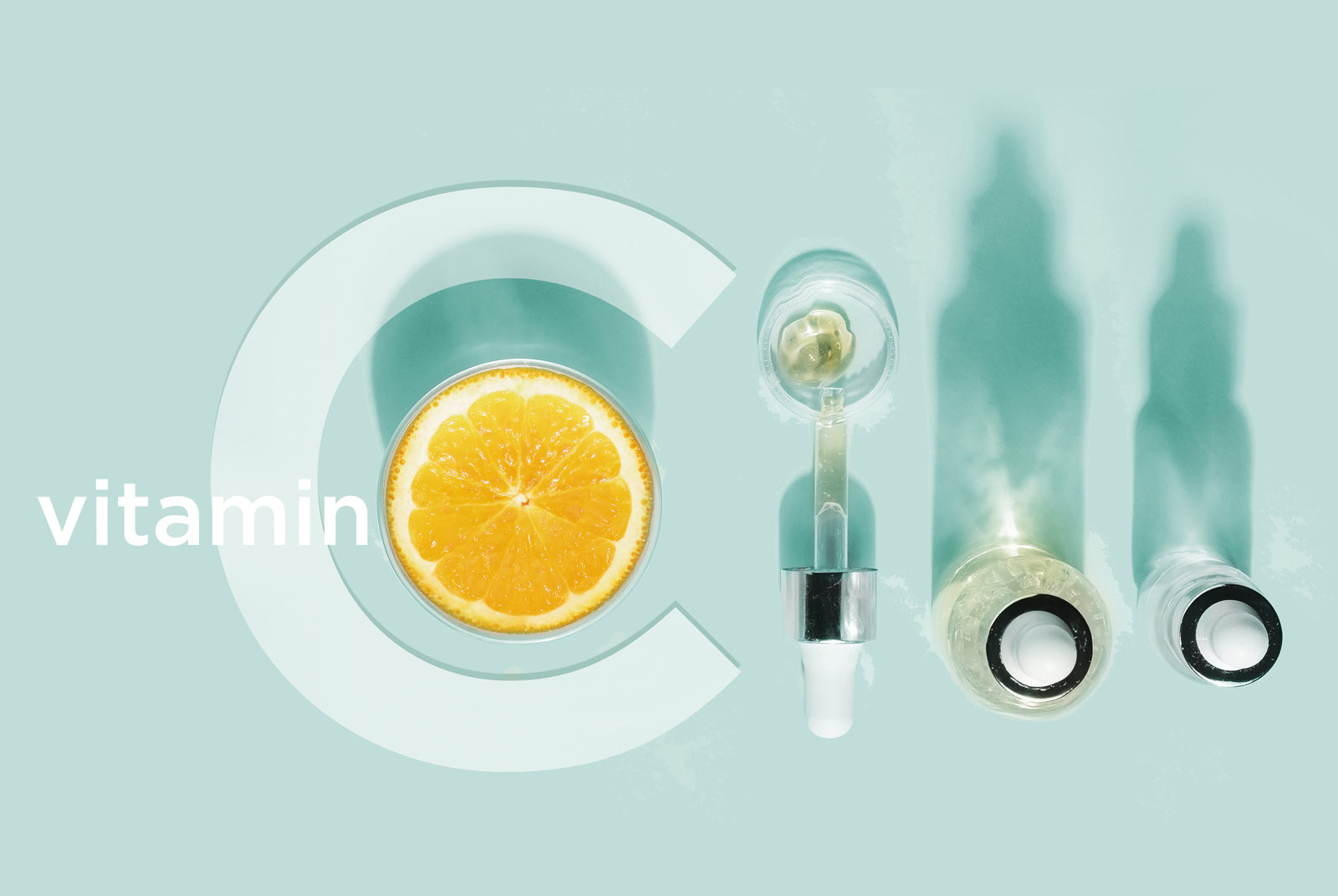Vitamin C and Collagen are two words that often go hand in hand but the link between the two is not always apparent. After all Vitamin C is supposedly an important vitamin to stave of colds and bugs and collagen is something you find in a bone broth. Well, both of these are correct, but there’s another area where these two nutrients plays a crucial role; skin health, particularly when it comes to age management.
One effect of maturing skin is the loss of collagen (and elastin); two fibrous proteins that help form connective tissue in the skin. As we age, these proteins tend to lose their strength and become less elastic, leading to sagging skin and wrinkles. This is why younger skin will appear more plump, taut and wrinkle free, whereas as we age, our skin integrity decreases.
The key to staving off the effects of ageing skin is to increase the production of collagen and effectively replace the natural loss and to do this, we need vitamin C. Vitamin C, a powerful antioxidant, is found in high levels in the outer layers of the skin and is crucial for the collagen production process and without it, the body cannot make replace this collagen. With age, there is a decline in the levels of vitamin C found in these layers of the skin.
So how do we increase the levels of both vitamin C and collagen in the body?
In the first instance, eating foods that are rich in vitamin C will provide good levels. As vitamin C is water soluble, it cannot be stored in the body, so it is important to eat foods rich in vitamin C throughout the day. Foods rich in vitamin C include
- Tomatoes
- Kiwi
- Oranges
- Broccoli
- Cabbage
- Cauliflower
A good quality vitamin C supplement can also be considered in addition to good dietary sources.
Although collagen can be consumed by making a slow cooked bone broth, using left over bones from a meal or obtained from the butcher, a good quality collagen supplement is perhaps a more convenient form and will not only provide adequate levels to replenish the collagen loss but will also provide it in a bio-available form that the body “recognises” and can use effectively. It is important to choose a brand that contains pre-digested collagen, otherwise it will not survive the digestive process and will not reach the outer layers of the skin where it is needed.
Whilst intake of vitamin C and collagen will go a long way to ensuring healthy skin as we age, it is also important to consider other factors to prevent further skin damage.
- Applying sunscreen lotion generously will help protect against the sun’s harmful ultraviolet rays which also contribute to the breakdown of collagen and elastin
- Smoking can also cause sagging skin and wrinkles but encouraging premature breakdown of collagen
- Some nutrients such as Alpha Lipoic Acid (ALA) can also slow down the breakdown of collagen. ALA is found in foods such as broccoli, spinach and yeast extract but can also be taken in supplement form on its own or as part of a good quality collagen supplement.

